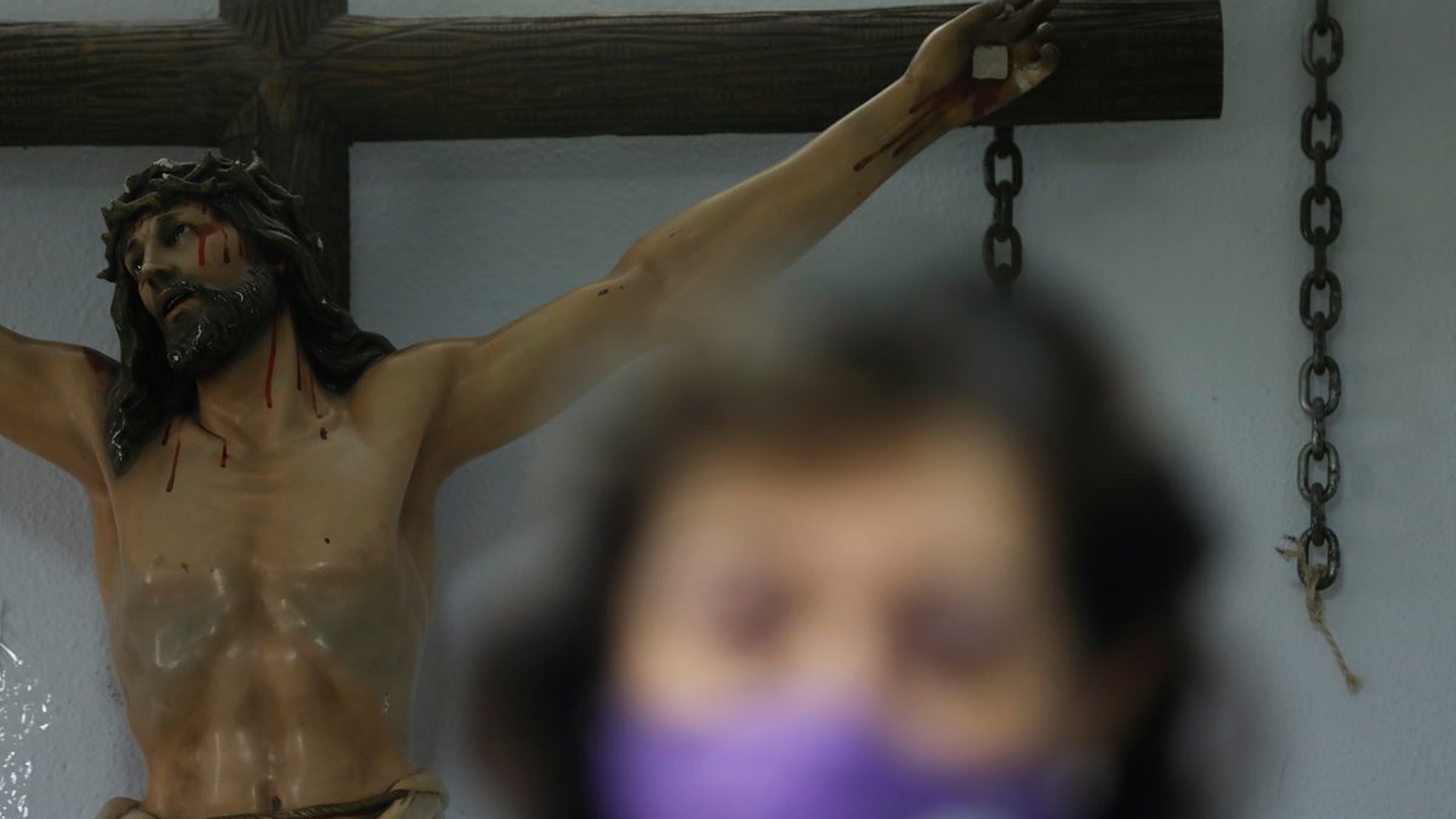It is easy to overstate how often certain themes appear in Sacred Scripture. But I think it is impossible to overstate the emphasis God places in the Scriptures on the role of humility and suffering in the Christian life.
The examples are too numerous to name. We are to take up our crosses to follow Jesus. God loves the one whom He chastises. Learn from me, Our Lord says, for I am meek and humble of heart. Take up your cross and follow me — or you won’t be worthy of me. We can’t say He hasn’t warned us!
At the same time, even using the word “warned” reminds me that, actually, Jesus almost never makes these teachings about our discipleship sound like a warning. Once in a while He does, like when He says in John 15:20, at the Last Supper, “If they persecuted me, they will also persecute you.” But usually — in part, I suppose, because He knows our weakness so well — He tucks in a reference to some kind of blessing. The Beatitudes are chock full of promised rewards for suffering, for example.
But the first reward we ought to have in mind, if we can muster up enough greatness of heart to think of it, is the reward that comes from the sheer fact of imitating Jesus. Simply to do as Our Lord did, to follow Him on the Way of the Cross, to serve as He served, to love as He loved, is its own blessing and reward.
In some measure, that is the lesson of this Sunday’s Gospel (Mark 10:35-45). We should not rush to join the 10 disciples who are ready to turn on James and John. They resented the brothers’ impetuosity at asking for a big-time reward for following Jesus. They implored Jesus, “Grant that in your glory we may sit one at your right and the other at your left.”
First, we need to ask ourselves in all honesty: Am I so free of ambition? Am I so very much at peace with the rewards God has promised, or do I crave more? Do I not sometimes wonder why God doesn’t do more for me?
Secondly, we need to admit our weakness in the area of pride, to repent of it, and to entrust ourselves to the Lord. This is the only way we can take the next step, the decisive step: taking up our crosses and following Jesus. We can’t “drink the cup” of Jesus, the cup of suffering, the cup of service, without His help.
That is because it goes very much against our grain to see victory under any terms but the obvious: with trophies and champagne or balloons falling out of the rafters. Victory, in the world’s terms, brings money and fame and power.
But the victory of Jesus is a disguised victory. We might call it a “stealth” victory. It is a bloody victory, but the blood is not that of Jesus’ enemies. It’s His blood! And so the question for you and for me becomes: Am I willing to give my blood for this victory? Which is to say: Am I willing to give my life for this victory? Because blood equals life. Am I willing, not to make my life as bright and sparkly as possible, but to give my life away?
Sunday’s first reading from the Book of Isaiah (53:10-11) tells us, “The LORD was pleased to crush him in infirmity.” What does that mean for me? Is the Lord pleased to crush me?
The answer is yes, but we need to remember that God will never call us to something for which He will not also prepare and empower us. And the “crushing” that happens to us is like the crushing of a grape in order to make wine. It’s not pleasant, maybe. It’s not the way of the lazy or the comfortable or those who seek glory for themselves. But it does produce something of far greater value. How many people would pay $100 for a cluster of grapes? No one, but they’ll pay that and more for a choice bottle of wine.
When our sufferings crush us, we can be confident that we are very close to Our Lord in those moments. We have a real opportunity to grow into the likeness of Jesus who is the sympathetic high priest about whom we hear in Sunday’s second reading (Hebrews 4:14-16). Jesus does not merely point out the way to us. He is the way. He has shown us how to do what He calls us to do.
It is getting harder these days to live the Christian life. We don’t have the supports we once had. We’re not surrounded by people who believe in Jesus. We don’t have a society built upon faith in God. Even the freedom to live according to our own faith is sometimes threatened.
At such a time, we might not find things easy, but we have good reasons to be at peace:
The Church has been through such times before, times of severe persecution. And she has come out of those times even stronger, which is to say, holier.
Again, Jesus told us it would be like this. He told us that suffering and persecution would be a part of life in this world.
We have a tremendous opportunity to grow as disciples, to become more humble and holy and to grow in friendship with Our Lord.
So whatever we’re finding challenging right now — our temptations to sin, loving our family members or friends, being honest at work, sickness, financial setbacks, or being faithful citizens of an increasingly secular nation — we should have the confidence. Our confidence comes from knowing that all we have to do is follow Jesus, to live for God’s glory, no matter what the cost, and we will share in His life and glory forever.
We can even begin to taste the goodness of this life and glory here on earth. That’s exactly what happens every time we celebrate the Holy Sacrifice of the Mass.
Fr. Charles Fox is vice rector and dean of seminarian formation at Sacred Heart Major Seminary in Detroit. He holds an S.T.D. in dogmatic theology from the Pontifical University of St. Thomas Aquinas (Angelicum), Rome.












